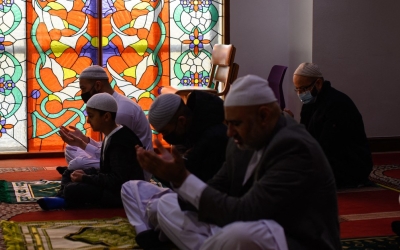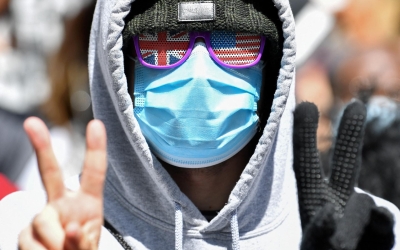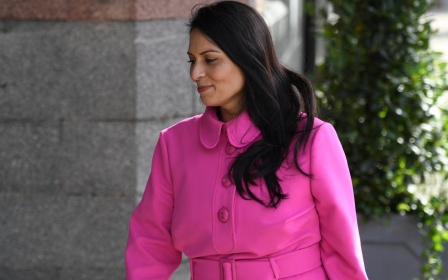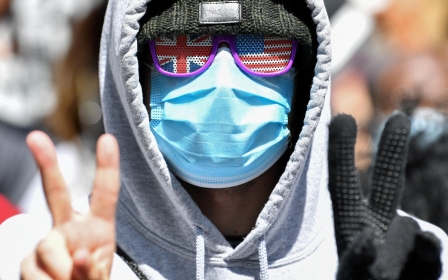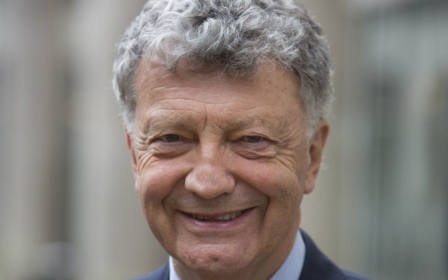David Cameron accused of 'Islamophobia' after singling out Muslim critics of Prevent

Campaigners have accused former UK Prime Minister David Cameron of Islamophobia after he singled out Muslim critics of the controversial Prevent strategy and said they were "enabling terrorism" in Britain by criticising the policy.
In a new report published by the right-wing think tank Policy Exchange, Cameron said the UK government's failure to debunk criticisms of Prevent would "jeopardise" Britain's fight against extremism.
The report claims that Prevent faces a concerted campaign by allegedly fringe Muslim groups, including the Muslim Council of Britain (MCB), to undermine the policy.
John Jenkins, who Cameron appointed to conduct a 2014 review of the Muslim Brotherhood in the UK, is one of the key authors of the Policy Exchange report.
Cameron recently participated in an aid convoy to Poland, delivering supplies with other volunteers from his former Oxford constituency, to refugees fleeing the war in Ukraine.
In the foreword of the report, Cameron defended his government's decision to establish the 2015 Counter-Terrorism and Security Act that made it mandatory for public bodies, including hospitals and schools, to report and refer anyone who showed signs of terrorism.
His intervention comes after UK Home Secretary Priti Patel said she wished to overhaul the Prevent scheme following the murder of Conservative MP David Amess.
For years, campaigners called on the government to establish an independent review of the Prevent strategy, and the government faced criticism when it appointed William Shawcross to conduct the inquiry.
Shawcross, who chaired the Charity Commission between 2012 and 2018, has faced criticism for his previous comments on Islam and accusations of Islamophobia.
His review is due to be published later this year.
'Attempt to shut down criticism'
Among the Muslim groups accused of undermining the Prevent strategy are CAGE, the MCB, the Federation of Student Islamic Societies, and the Muslim Engagement and Development (MEND) group.
The Policy Exchange report also makes reference to several opinion articles written in Middle East Eye that were critical of the Prevent strategy.
MEND hit back at Cameron's comments and described it as a "blatant Islamophobic attack on Muslim critics of the Prevent strategy and the Shawcross review in the strategy".
"For Policy Exchange to claim that legitimate and well-founded critique of Prevent is 'Islamist' and 'extremist' is nonsense, and a thinly disguised and blatant attempt to shut down criticism from various Muslim groups and to deligitimise them," said MEND.
Muhammad Rabbani, managing director of CAGE UK, said Policy Exchange aimed to promote a "false reality of unopposed activists critiquing Prevent in order to explain away communities' wholesale rejection of Prevent".
A spokesperson for the Muslim Council of Britain said, "Policy Exchange has consistently led efforts to discourage cooperation between the authorities and the MCB.
"It is therefore laughable that Policy Exchange should now claim that we are the ones discouraging cooperation because we are exercising our democratic responsibility to scrutinise bad policy."
The Federation of Student Islamic Societies (FOSIS) also condemned Cameron's comments and the Policy Exchange report.
"The isolation of only Muslim groups and individuals in this report reifies the fact that the Prevent legislation exceptionalises Muslims," a spokesperson from FOSIS said in a statement.
"This also adds credence to the point that the strategy is Islamophobic at heart and the comments by David Cameron show how institutionalised the process of criminalising Muslims has become."
Middle East Eye propose une couverture et une analyse indépendantes et incomparables du Moyen-Orient, de l’Afrique du Nord et d’autres régions du monde. Pour en savoir plus sur la reprise de ce contenu et les frais qui s’appliquent, veuillez remplir ce formulaire [en anglais]. Pour en savoir plus sur MEE, cliquez ici [en anglais].


